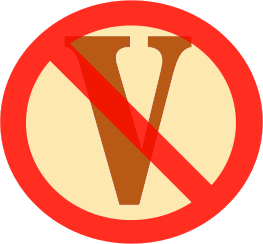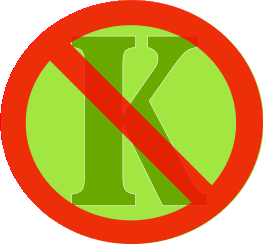URINE HEALTH REMEDIES

Categories in Kidney Bladder UrinaryUrineBladderKidneyOverviewDon't know your body type? Take our free Dosha quiz!
TAKE THE QUIZ
     (5.00 out of 5 stars) 1 rating, 56 likes (5.00 out of 5 stars) 1 rating, 56 likes SAVE SYMPTOM SAVE SYMPTOMFrequent urination causes significant loss of electrolytes and dehydration. Dehydration creates digestive problems and constipation. The quantity of urine is related to many factors including diabetes and diuretic foods and pharmaceuticals. When there... 39 likes  SAVE SYMPTOM SAVE SYMPTOMNightime urination may be due to toxicity in the blood, which gets filtered by the kidneys. Alternatively, night-time urination can indicate diabetes, especially if the urine is cloudy or bubbly. 35 likes  SAVE SYMPTOM SAVE SYMPTOMClear urine can be a sign of adequate hydration, eating a diuretic, chronic cold, or that the kidneys are flushing toxins out of the blood. Chronic cold and toxicity may lead to frequent urination & chronic dehydration that cannot be remedied by... 20 likes  SAVE SYMPTOM SAVE SYMPTOMGenerally, urine should be straw colored, or light yellow. Dark yellow urine implies the urine has a lower concentration of water than normal. This may be due to dehydration, a high sodium diet, electrolyte imbalance, poor circulation to the kidneys... 12 likes  SAVE SYMPTOM SAVE SYMPTOMA large amount of bubbles after urinating indicates loss of protein in the urine. This occurs when the kidneys are irritating, perhaps by high blood sugar or ther factors. 22 likes  SAVE SYMPTOM SAVE SYMPTOMCloudy urine most likely results from a heat condition (Pitta) aggravating Kapha. Examples include infections of the bladder / kidneys. 33 likes  SAVE SYMPTOM SAVE SYMPTOMUrine becomes smelly when it ferments due to bacteria in the bladder, or after eating certain foods such as asparagus. Fermentation in the bladder happens due to an infection, inflammation, or because the urine is sitting in the bladder for too... 21 likes  SAVE SYMPTOM SAVE SYMPTOMPainful urination can be a sign of infection, kidney / bladder stones (calculi), or allergic or other irritation. Males with enlarged prostates may suffer from candida infections due to urinary obstruction. Females may have burning urination due to... 8 likes  SAVE SYMPTOM SAVE SYMPTOMUrge incontinence refers to urine leakage with urge to urinate. Stress incontinence refers to urine leakage when straining, coughing, laughing, or exercising. Enuresis also include bed wetting, which may be due to irritation of the bladder after... 60 likes  SAVE SYMPTOM SAVE SYMPTOMDiabetes Type I, is a generally a Pitta disorder where the immune system attacks and destroys insulin producing cells of the pancreas. Diabetes type II, from insulin resistance, is generally a Kapha disorder. Diabetics tend to develop thick, doughy... KIDNEY BLADDER URINARY TIPS DISCLAIMER: The pathogenesis of each person's condition is unique, and so the diet must be fit to the individual and the unique root causes of the condition in your body. The information on this page is for educational purposes only and should not be used to treat a medical condition. It is not a substitute for medical care. Please check with your doctor before making any changes to your health and wellness routine. HOW AYURVEDA WORKSARE YOU WONDERING HOW AYURVEDA CAN HELP YOU?WHY IS AYURVEDA THE RIGHT SOLUTION?Ayurveda strengthens the body while opposing disorders. It takes a holistic, systemic approach that looks at the whole body. Ayurveda shows how to interpret signs and symptoms of imbalance, and how to address them using diet, lifestyle adjustments, and herbs. It shows a person how to optimize their health on a continual basis. You can't take the doctor home with you, but you can take Ayurveda home with you. Ayurveda is the most advanced and easy to use home system for self healing.HOW DOES AYURVEDA WORK?Ayurveda starts by identifying your body type, which identifies certain tendencies in your body to get sick (as well as identifying your strengths). It uses body type to determine the likely root causes of your disorders. Next, Ayurveda analyzes the nature of your disorder. It fits all your signs and symptoms into a pattern, expressed as a combination of biocharaceristics (gunas). For example, you may have a heat disorder, a cold disorder, or an oily disorder, etc. This simple categorical approach shows you how to correct systemic imbalances and strengthen your body as a whole.On Joyful Belly, we've created an extensive categorization of food so you can easily match food to your imbalanced biocharacteristics. By eating an optimal diet that balances your biocharacteristics, your whole body is strengthened and the conditions that created the disorder are removed. Once the root causes of the disease are removed, the disease lessens in strength or disappears altogether. Additional remedies - such as herbs and lifestyle practices - focused on the specific disorder, can greatly enhance your healing. GET STARTEDTo get started on your Ayurvedic journey, we first recommend that your find your body type by taking our free quiz. In Ayurveda, every solution is based on your unique body type, so by taking this quiz, you’ll get the best results. |
Join Joyful Belly.
Want our top Ayurvedic recipes and health tips?Subscribe to our free newsletter!











